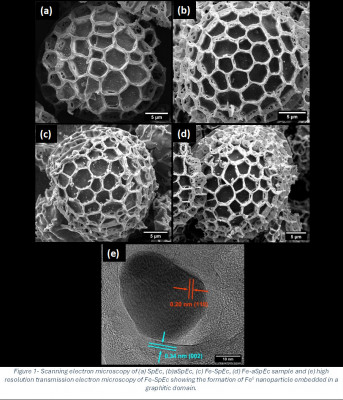News
Research on one of the oldest organic materials on earth published
11 November 2024


Led by Dr Roberto Volpe and co-authored by Prof Ana Sobrido, the article is the second of three in a series of investigations into the functionalisation of sporopollenin exine capsules of Lycopodium Clavatum.
Dr Volpe explains “Sporpollenins (SpECs) are one of the oldest organic materials on earth. Nature synthesised them hundreds of millions of years ago to protect the genetic material of plants.”
Their unique chemical and physical properties make them ideal for catalysis – they have proven to be a strong and durable bio-based material that supports iron-based catalysts effectively.
“They are one of the most chemically and thermally robust biological polymers on earth, exhibiting unique and uniquely consistent morphologies and the nano and micro scales.”
The most interesting finding of the research is that, owing to their chemical robustness, these materials maintain their unique and consistent geometry even after high temperature (1000 °C) thermal treatments.
This work opens up further possibilities for cost-effective, nature-based catalysts for catalytic reactions needed for electrochemical devices and CO2 reduction – meaning it could contribute to more sustainable production and processes.
“I am pleased to share another great article on these incredibly fascinating biopolymers. Sporopollenins were beautifully crafted by Nature hundreds of millions years ago; today their exceptional chemical and thermal stability allows us to synthesise robust catalysts for some of the most sought after applications such as the oxygen reduction reaction” said Roberto.
| Contact: | Roberto Volpe |
| Email: | r.volpe@qmul.ac.uk |
| Website: | |
| People: | Roberto VOLPE Ana JORGE SOBRIDO |




